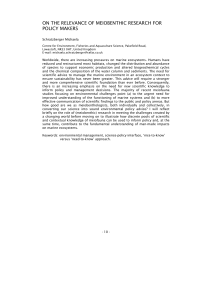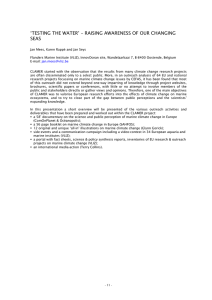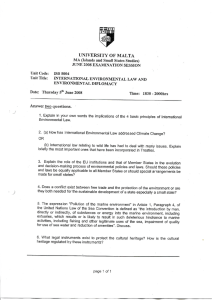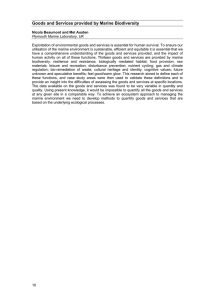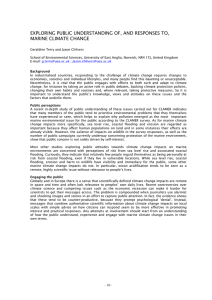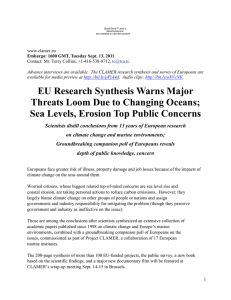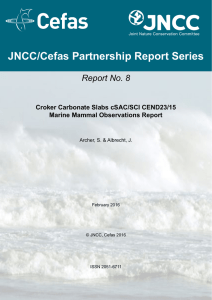THE OUTCOMES OF THE FIRST PAN-EUROPEAN POLL ON PUBLIC
advertisement
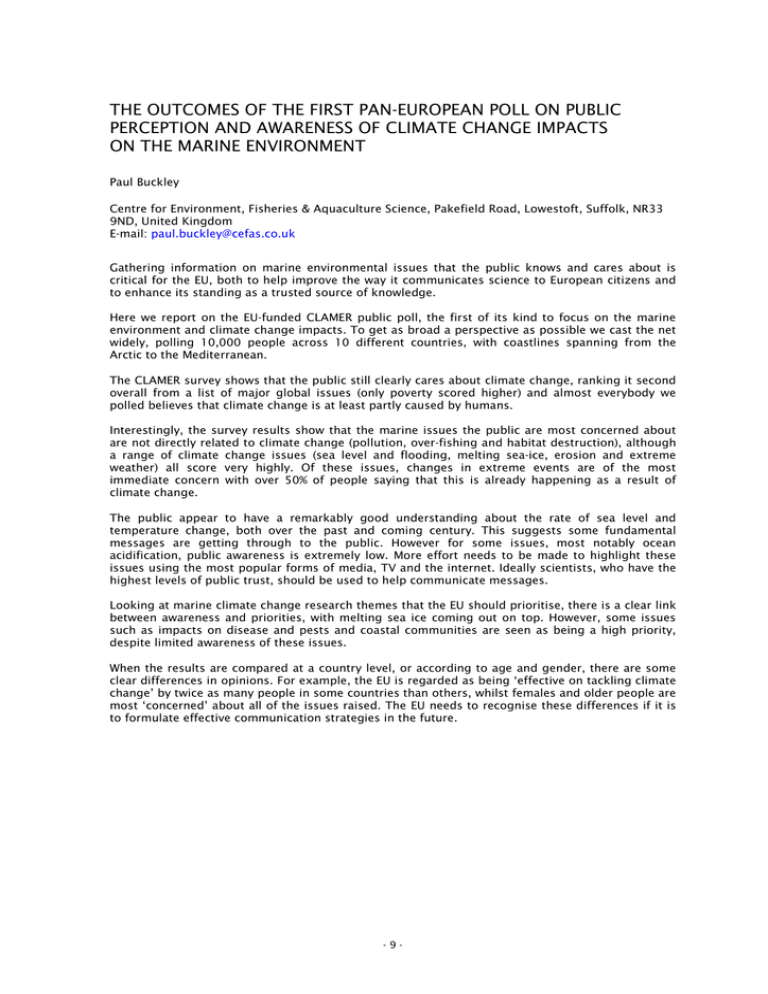
THE OUTCOMES OF THE FIRST PAN-EUROPEAN POLL ON PUBLIC PERCEPTION AND AWARENESS OF CLIMATE CHANGE IMPACTS ON THE MARINE ENVIRONMENT Paul Buckley Centre for Environment, Fisheries & Aquaculture Science, Pakefield Road, Lowestoft, Suffolk, NR33 9ND, United Kingdom E-mail: paul.buckley@cefas.co.uk Gathering information on marine environmental issues that the public knows and cares about is critical for the EU, both to help improve the way it communicates science to European citizens and to enhance its standing as a trusted source of knowledge. Here we report on the EU-funded CLAMER public poll, the first of its kind to focus on the marine environment and climate change impacts. To get as broad a perspective as possible we cast the net widely, polling 10,000 people across 10 different countries, with coastlines spanning from the Arctic to the Mediterranean. The CLAMER survey shows that the public still clearly cares about climate change, ranking it second overall from a list of major global issues (only poverty scored higher) and almost everybody we polled believes that climate change is at least partly caused by humans. Interestingly, the survey results show that the marine issues the public are most concerned about are not directly related to climate change (pollution, over-fishing and habitat destruction), although a range of climate change issues (sea level and flooding, melting sea-ice, erosion and extreme weather) all score very highly. Of these issues, changes in extreme events are of the most immediate concern with over 50% of people saying that this is already happening as a result of climate change. The public appear to have a remarkably good understanding about the rate of sea level and temperature change, both over the past and coming century. This suggests some fundamental messages are getting through to the public. However for some issues, most notably ocean acidification, public awareness is extremely low. More effort needs to be made to highlight these issues using the most popular forms of media, TV and the internet. Ideally scientists, who have the highest levels of public trust, should be used to help communicate messages. Looking at marine climate change research themes that the EU should prioritise, there is a clear link between awareness and priorities, with melting sea ice coming out on top. However, some issues such as impacts on disease and pests and coastal communities are seen as being a high priority, despite limited awareness of these issues. When the results are compared at a country level, or according to age and gender, there are some clear differences in opinions. For example, the EU is regarded as being ‘effective on tackling climate change’ by twice as many people in some countries than others, whilst females and older people are most ‘concerned’ about all of the issues raised. The EU needs to recognise these differences if it is to formulate effective communication strategies in the future. -9-
